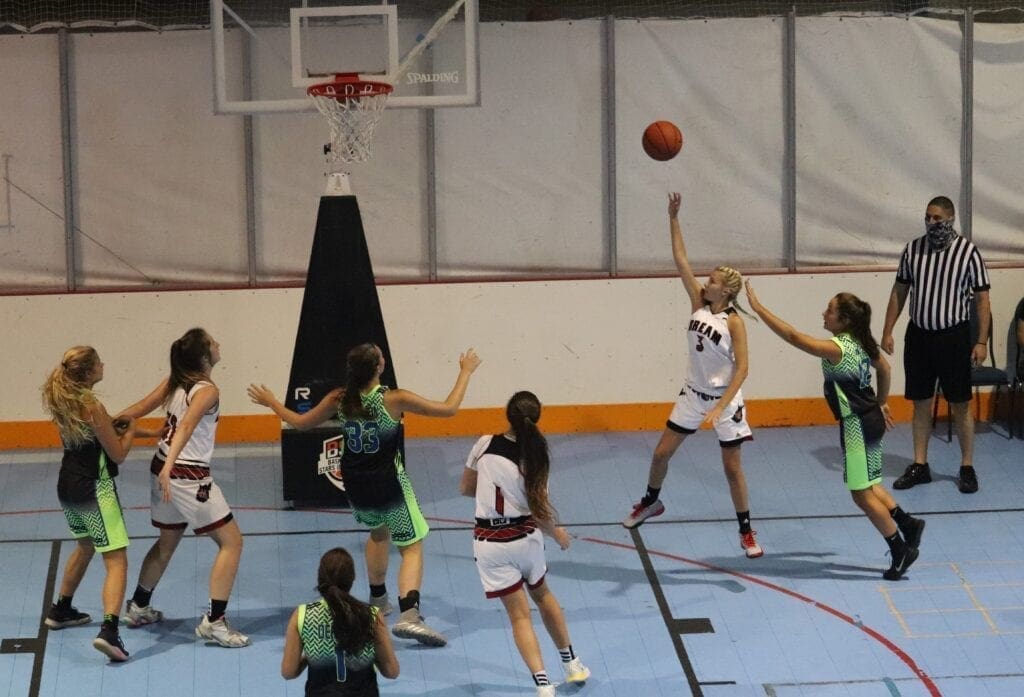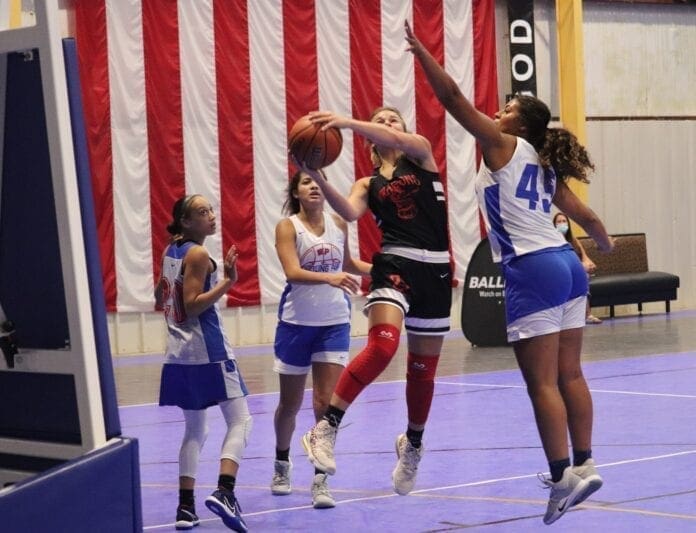West Virginia Governor Jim Justice’s decision to further delay the high school sports seasons until March raised more than a few eyebrows recently, along with a lot of ire.
Every state surrounding West Virginia is playing sports or is about to launch seasons. Colleges IN the state of West Virginia just started playing, in the case of the Mountain East Conference, or have been for months, i.e., WVU and Marshall. These examples further compound the issue when coaches and parents try to explain this decision to their sons and daughters.
Then, when parents and athletes decided to rally outside the Capitol recently in support of sports, the governor was not only unmoved, but downright defensive and dismissive. But bad optics and what could be taken as a lack of empathy or use of logic are not the only worries when it comes to high school sports.
There’s the AAU question. It’s a real win and it could be a major issue as the high school season approaches in March.
Bernie Dolan had teleconferences last week first with high school coaches, and then with athletics directors across the state. Chief among the topics is how to go about squeezing in a winter season with as little overlap as possible with the spring sports season.
The executive director of the WVSSAC noted that there’s a rough draft in place, but those plans need approved ultimately by the Governor and didn’t want to divulge said plans until they were given the official OK from Justice.
Regardless of when the season begins, and ends, it’s going to conflict with the start of the AAU season.
“We normally start practicing toward the end of March,” said Chad King, the head of the Ohio Valley Dragons girls’ organization. “The first tournament is the second week of April. So, players will probably miss three tournaments and two exposure events.
“That’s a huge loss considering they lost most of last year too.”
Unless They Don’t
The real issue at hand is what if the players don’t miss the AAU season? What if they opt out of their high school seasons entirely in favor of the greater potential recruiting exposure of the club circuit? Think it’s not a possibility? It most certainly is.
King’s already had conversations with a number of his players’ parents. After missing nearly half the AAU season in 2020, they don’t’ want a repeat this offseason.
“Parents feel they shouldn’t have to be in this position to make the decision in the first place,” King said. “But many top players are opting out of their high school seasons.”
Parents in Ohio aren’t going to have to make these decisions. Neither will parents in Kentucky, Pennsylvania, Virginia, etc.
King knows the top Division 1-level talent will still get recruited, regardless. Some of those kids may stay.
But it’s the student-athletes fighting for Division II, III, and NAIA attention that need every extra chance at exposure they can get. In there, decisions will have to be made.
“Your top D1-level kids will still get recruited,” King said. “But it kills D2 talent in the 2022 class. These kids need seen because no one is coming to small West Virginia schools to see them. Most colleges can’t do in-person recruiting.
“It’s already hurt the 2021 class and, unfortunately, is probably too late for some of them.”

Why Not Both?
For now, playing both high school and AAU ball is forbidden by WVSSAC bylaws. Once the high school season starts, participating in even one AAU tournament, or even practice, nullifies high school eligibility.
But what if it didn’t? Could the SSAC grant, at minimum, a one-year waiver of said rule?
“That’s a possibility, but the Board would have to vote on that,” Dolan said. “And we’ve talked to a lot of coaches who aren’t in favor of doing so because they are worried about added chances of injuries and competing events come tournament time.”
King admits he’s not in favor of doing both either. When AAU teams have tournaments, they are going an entire weekend at a time, playing multiple games in a 2-3-day span.
“I absolutely don’t see it being feasible,” King said. “These kids would be gone at minimum all weekend. Also, I’m very against that many games (at a time). I believe the body needs to rest.”
Most high school kids who fashion themselves “ballers” would relish extra chances to play the game they love each week, whether their bodies could keep up physically or not.
Consider this one team example.
Fairmont Senior’s girls’ team has arguably the best player in the state in junior West Virginia verbal commit Marley Washenitz. The Polar Bears were already favored to reach the state tournament and challenge for the AAA title in the new, four-class alignment.
That was before Grafton junior Meredith Maier opted to transfer in the offseason. Her addition pushes Fairmont to the top of the favorites list.
Washenitz’s collegiate future is all but set. Maier, on the other hand, has a number of Division II offers, including a few from MEC teams like Alderson-Broaddus and Fairmont State. But she may still decide to opt out for further exposure whereas Washenitz doesn’t have that need. She can afford to wait until the high school season is over to join her West Virginia Thunder teammates.
Not All Coaches are Against
Wheeling Park coach Michael Jebbia admitted this topic is a hot one in coaching circles but regionally and statewide.
And not everyone is against it. Jebbia, at minimum, believes there should be some allowances for AAU during his season at least.
“During the timeframe of our regular season, there could be built in some Flex AAU weekends for each player,” Jebbia said. “They could have a weekend or two where they could go be with their team. Now they may miss a high school game, or we could not schedule on that week.
“But they could miss and come back to their high school team without penalty.
“Why hurt the kids more? They’ve already been hurt enough. If they want to play some form of AAU ball at the same time, so be it. Let them.”
The schools will already be sharing their players with spring sports. Wheeling Central transfer Avery Lee is a baseball signee at Marshall. He’s also going to factor into the Patriots’ backcourt this winter. But Jebbia admitted once baseball starts, he’ll have to share Lee’s time and talents with the Park baseball team.
Senior D.J. Saunders is already committed to Wheeling University, so he’ll likely stick around. The Patriots also have a large sophomore class that the coach feels are committed to what the high school team could achieve this season. After all, Park was headed to Charleston last season before the tournament was canceled. There’s that air of unfinished business for Park and many other teams.
Jebbia also knows that coaching at a school the size of Park, his roster could lose a player or two and still be able to fill in with, at least, comparable talent. Smaller schools may not be as lucky.
“We could lose a kid or two and still field a nice team,” Jebbia said. “But at a smaller school, if their best player decides to opt out and paly AAU, it could crush that schools’ team.
It Only Takes Once
Jebbia did talk about the relatively low statistics of the number of high school players who wind up playing coaching basketball, at any level, not just Division I.
He’s had a lot of talent during his 14 seasons helming his alma mater, and of that talent, only five players received official scholarship offers.
But he also knows it only takes have one big game at the right tournament to make all the difference.
Phil Bledsoe was a talented player for Jebbia and was receiving a few looks. But then …
“He had one good game in Indianapolis, and my phone rang off the hook for the next three days,” Jebbia said. “He received six offers in four days off on one basketball game.
“The same with Alex Vargo. He was played on the Nike circuit and had a couple of good games and someone saw him.”
Bledsoe, who originally went to Marshall before transferring, was only the second in-state signee with the Herd since 2002 to come straight from high school. Without that exposure, he may not have gotten that initial chance.
Of course, had Justice allowed the season to start in mid-January as was the original modified plan, all this would be moot.


